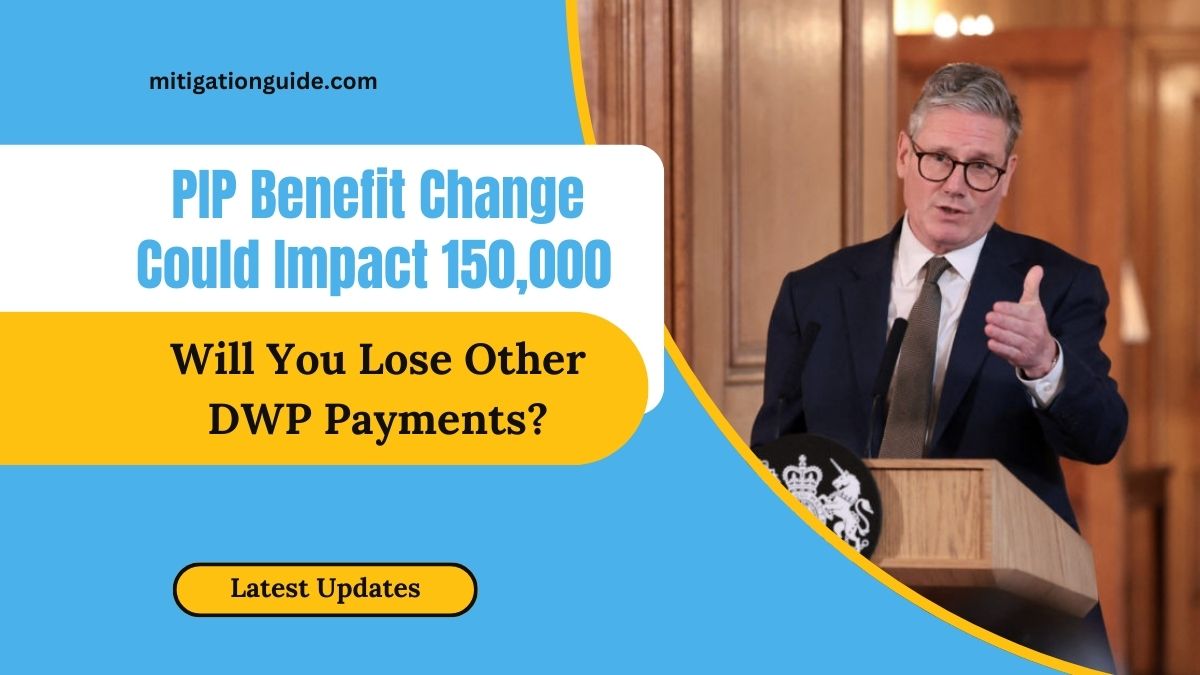In 2025, upcoming changes to the Personal Independence Payment (PIP) could have significant effects on around 150,000 people currently receiving support through the Department for Work and Pensions (DWP).
These reforms aim to tighten eligibility for PIP, and many recipients fear they may lose other associated benefits, such as Carer’s Allowance and the Universal Credit Carer Element.
This article explores the potential impact of these changes, who will be affected, and what you can do to prepare.
What Is PIP and Why Does It Matter?
The Personal Independence Payment (PIP) is a benefit provided by the UK government to help individuals with long-term health conditions or disabilities cover the additional costs of living with their condition. PIP is broken down into two components:
- Daily Living Component: For people who need help with everyday tasks such as washing, dressing, and preparing meals.
- Mobility Component: For people who require assistance with getting around.
The PIP assessment uses a points-based system to determine eligibility. The more points a person earns based on the severity of their condition, the higher their chances of receiving the benefit.
What Are the Proposed Changes to PIP?
In 2025, the government plans to introduce changes to the PIP assessment process, which could result in tighter eligibility and a decrease in the number of people receiving the benefit. The changes include:
- Raising the Minimum Points Threshold: The minimum points required to qualify for the Daily Living Component could increase from 8 to 12 points, making it more difficult for some claimants to qualify.
- Stricter Assessments of Health Conditions: The reassessment process will include a more thorough evaluation of the activities individuals can or cannot do due to their condition. Certain conditions may be excluded from the eligibility criteria.
These changes are set to impact around 150,000 people who currently receive PIP but may not meet the new thresholds.
Impact on Other DWP Benefits
The proposed changes to PIP do not exist in isolation. Many individuals who claim PIP are also receiving other benefits through the DWP, including:
- Carer’s Allowance: For those providing care to someone receiving a qualifying benefit like PIP.
- Universal Credit Carer Element: An additional payment available to those who claim Universal Credit and are caring for someone with a disability.
If an individual loses their PIP entitlement due to the new criteria, they may also lose eligibility for these other important benefits, resulting in a significant reduction in overall income. Some estimates suggest that 150,000 people could lose these additional DWP payments if their PIP is reassessed and reduced or withdrawn.
Estimated Financial Impact
| Benefit | Potential Loss |
|---|---|
| Carer’s Allowance | £81.90 per week |
| Universal Credit Carer Element | £198.31 per month |
| Average Loss for Affected Individuals | £1,720 annually |
| Potential Maximum Loss | £4,500 annually |
When Will the Changes Take Effect?
The new PIP assessment criteria are expected to be rolled out starting November 2026. This means claimants will start being reassessed under the new criteria around this time, and those who no longer qualify will likely see their payments reduced or stopped.
How Can Affected Individuals Prepare?
If you are concerned about the impact of these changes, here are a few steps you can take to prepare:
- Review Your PIP Claim: Ensure that all the information about your health condition and its impact on daily living is up-to-date and accurately reflects your situation.
- Seek Advice: If you think you may be affected by the changes, it’s advisable to contact support organizations or a welfare rights advisor to better understand your options.
- Explore Other Benefits: Check if there are any other benefits or support programs that you may be eligible for. There may be additional allowances or tax credits available to help with the loss of PIP.
- Keep Your Details Updated: Make sure your personal and financial information is always up-to-date with the DWP to ensure you continue receiving the right amount of support.
The proposed PIP changes are likely to affect around 150,000 individuals, potentially reducing their eligibility for important DWP benefits like Carer’s Allowance and the Universal Credit Carer Element.
For those who may be impacted, it’s important to stay informed, review your claim, and seek professional advice to ensure you continue receiving the support you are entitled to.
FAQs
How will these PIP changes affect existing claimants?
Existing claimants will undergo reassessment based on the new criteria starting November 2026. If they no longer meet the required points threshold, they may lose their PIP entitlement and associated benefits.
Will I still get my Carer’s Allowance if my PIP is reduced?
No. If your PIP is reduced or stopped, you may also lose eligibility for Carer’s Allowance and other related benefits like the Universal Credit Carer Element.
What should I do if I lose my PIP entitlement?
If you lose your PIP entitlement, you should immediately contact the DWP to explore options for appeals or alternative benefits. Seeking advice from welfare rights organizations can help you understand your next steps.
